The use of the lips, facial muscles, tongue, and teeth in playing a wind instrument.
What is embouchure?
Rolls, Diddles, Flams, and Drags are the four main categories of this type of fundamental exercise compiled by the Percussive Arts Society in 1984.
What are rudiments?
The open notes on this string instrument, from lowest to highest, are:
G, D, A, E
What is a violin?
The oboe and English horn utilize this method of vibrating air.
What is a double-reed?
The two primary ways that brass players change notes on their instruments.
What is changing air direction/speed and changing valve combinations or positions?
The pitch tendency for brass players when the temperature on stage gets warmer.
What is sharper?
This snare drum rudiment notated below:

What is a flam?
The open note on the highest string of this instrument is G.
What is a bass?
The clarinet uses this method of vibrating air.
What is a single reed?
The written open notes below are for this brass instrument:

What is the trumpet?
The pitch tendency for string players when the temperature on stage gets warmer.
What is flatter?
This member of the idiophone family of percussion instruments:

What is a triangle?
The open notes on this string instrument are the same pitch classes as the cello (up one octave).
What is a viola?
This woodwind instrument vibrates air by blowing across a tone hole and splitting the air stream across a hard edge.
What is the flute?
The written open notes below are for these two brass instruments:

What is the trombone and the euphonium?
This musical term describes the most separated quality of articulation.
What is staccato?
This member of the membranophone family of percussion instruments:
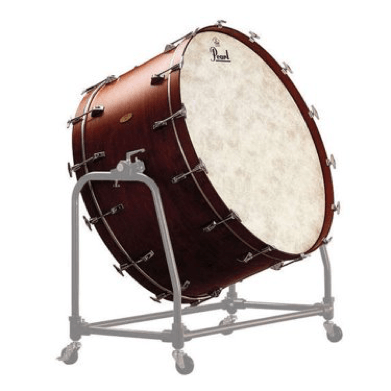
What is a bass drum?
The open notes on this string instrument, from lowest to highest, are: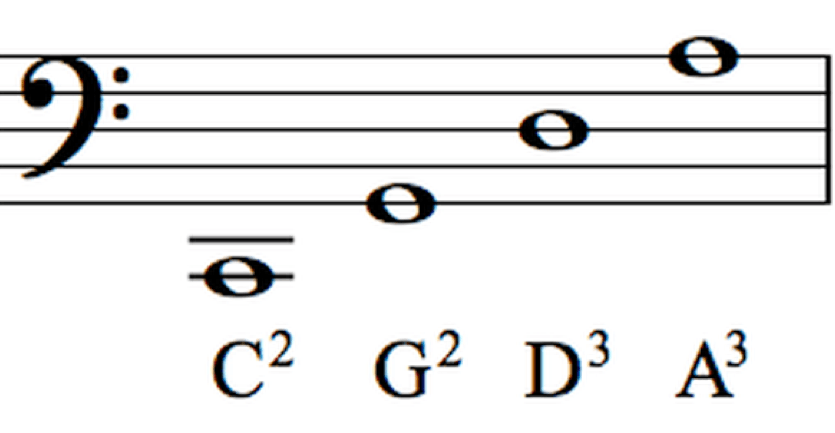
What is a cello?
Flat chin, corners forward, teeth on top of mouthpiece, tongue in an “EE” position, and a 30-degree mouthpiece angle are the checkpoints for evaluating the correct embouchure on which woodwind instrument?
What is the clarinet?
The missing valve combination from below, listed in order from shortest to longest:
OPEN
2
1
1 - 2
_______
1 - 3
1 - 2 - 3
What is 2 - 3?
This musical term describes the most connected quality of articulation.
What is legato?
This member of the aerophone family of percussion instruments:
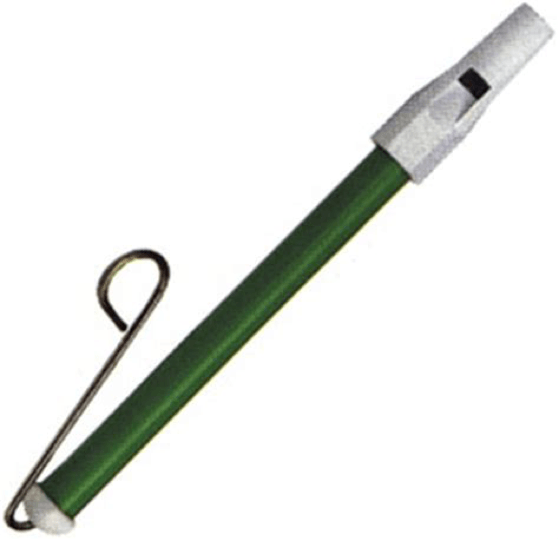
What is a slide whistle?
This French word means separate bows, used for notes not connected by slurs.
What is detache?
The articulation syllable you would recommend for your wind section to use a very smooth, legato articulation in a passage of music.
What is duuu?
Your trumpet student should adjust the tuning slide in this direction if she was playing sharp compared to the rest of a musical group.
What is pull out?
This musical term describes a heavily accented articulation.
What is marcato?
This member of the chordophone family of percussion instruments:
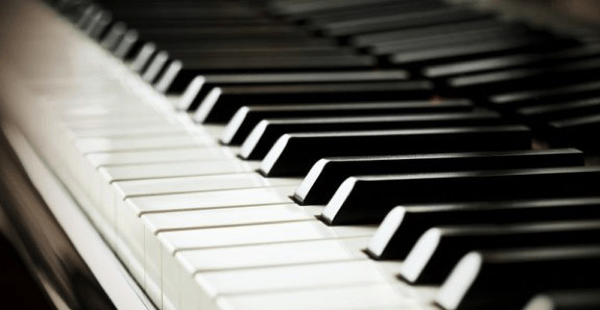
What is a piano?
The bowing indicated in the first measure of this violin excerpt:
What is an upbow?
Beginners should start on this first in order to focus on developing the proper embouchure, tone production, air support, and articulation technique.
What is the "small instrument"?
The first note of this concert pitch music, transposed to written pitch for the French horn.

What is G4 (g minor)?
Translated from the Italian word for “held,” his musical term describes a full-length articulation, which could also be slightly louder than surrounding music.
What is tenuto?
The center of the bar, over the resonators:
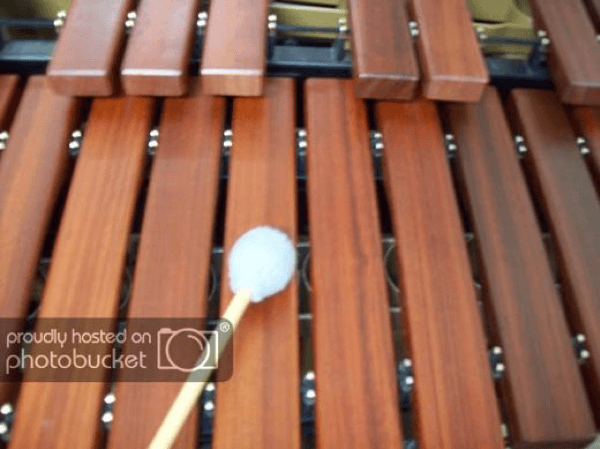
What is the best place to strike a keyboard instrument?
The slur on the eighth notes in measure three indicates that these notes are to be played on one bow in this direction:

What is an upbow?
The basic six-tone-hole scale on the flute, oboe, and saxophone begins with this written note.
What is D?
 The slide position for the first note for trombone in this passage.
The slide position for the first note for trombone in this passage.
What is 6th position?
The direction of pitch level as a tube is elongated.
What is lower (or flatter)?
This part of the drumstick:

What is the tip?
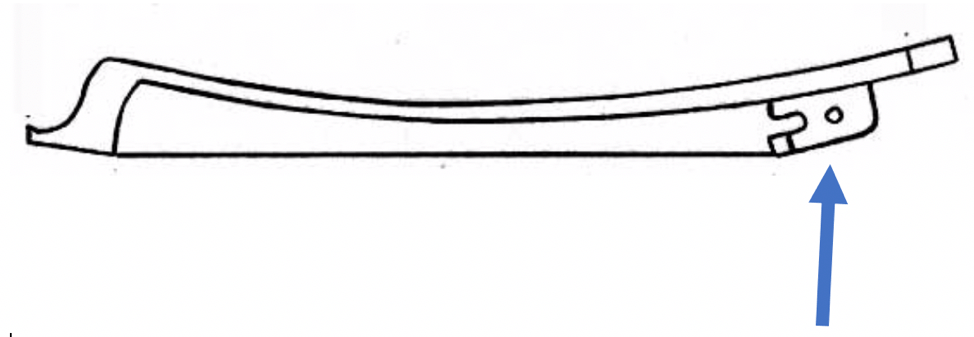 This part of the bow:
This part of the bow:
What is the frog?
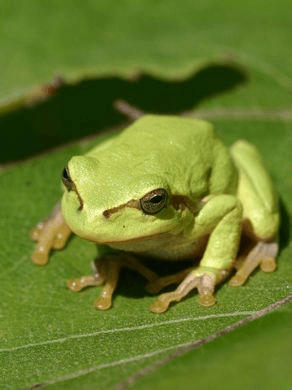
The only woodwind instrument that regularly reads music in the bass clef.
What is the bassoon?
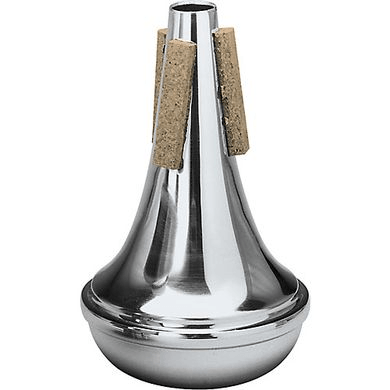 This mute for trumpet:
This mute for trumpet:
What is a straight mute?